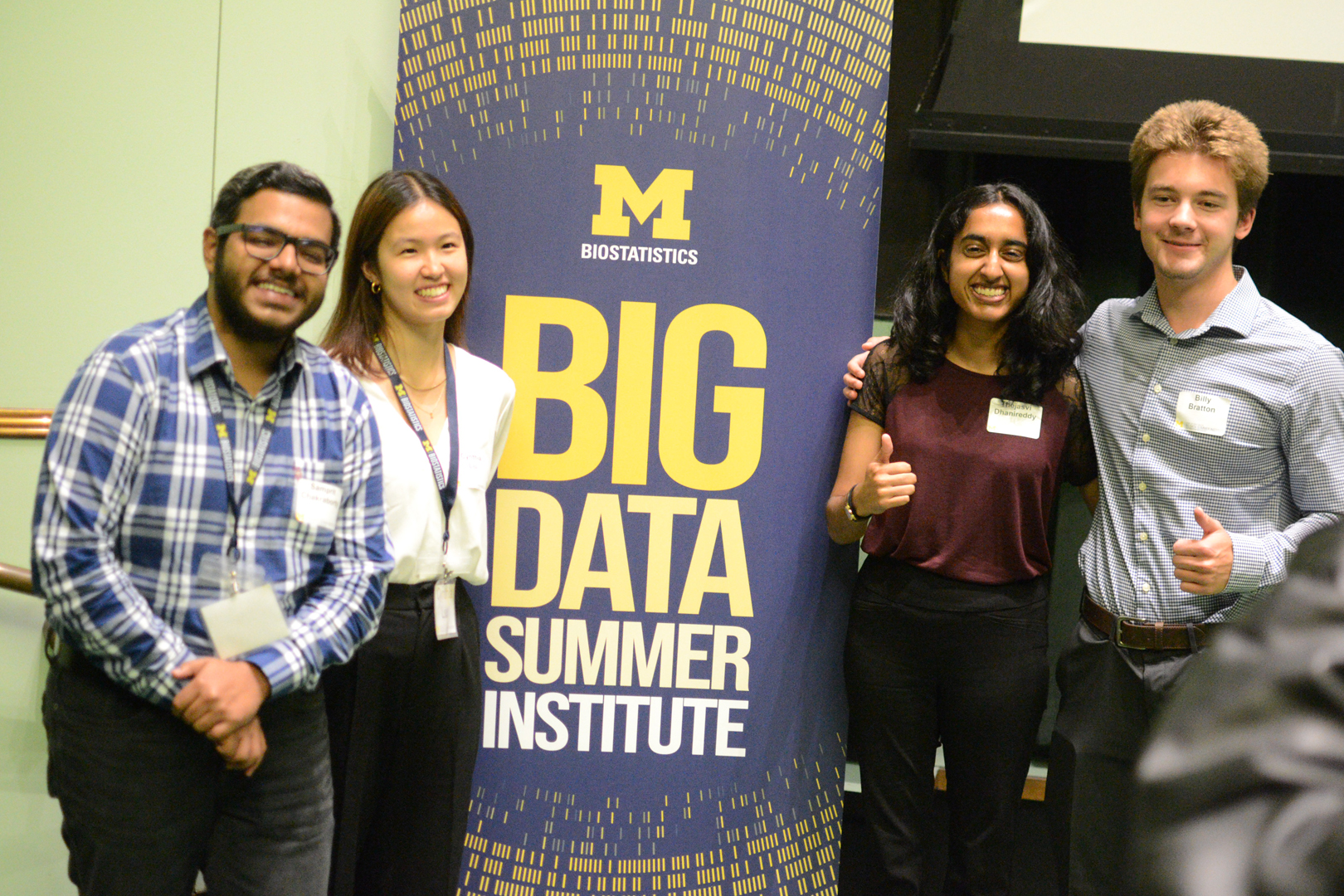What is BDSI?
The Big Data Summer Institute (BDSI) is a transformative six-week program designed for students eager to explore the exciting world of data science and its applications in public health and biomedical research. Our goal is to immerse undergraduate students in the research process and prepare them for graduate school.
Program History
Founded in 2015 by Dr. Bhramar Mukherjee, the Big Data Summer Institute was established to train the next generation of quantitative scientists by immersing them in cutting-edge research projects at the interface of statistics, computing, and health sciences. The program was developed through a joint effort between the departments of biostatistics, statistics, and computer science, and funded through grant support from the National Institutes of Health (NIH) and National Heart, Lung, and Blood Institute (NHLBI) Summer Institute in Biostatistics (SIBS) program. The program has also been financially supported by the departments of Biostatistics and Statistics, Rogel Cancer Center, Rackham Graduate School, and external sponsors such as Flatiron Inc. and Trehan Foundation.
Over the years, BDSI has welcomed students from diverse academic backgrounds, providing them with foundational skills and fostering a collaborative environment where data science, public health, and statistical research intersect. The program has trained more than 350 undergraduate students, many of whom are now enrolled in elite graduate programs and employed in quantitative or health-related fields. More than half of past BDSI participants are female, and approximately 18% are from underrepresented groups in STEM.
Program Structure
The BDSI curriculum is designed to provide an immersive and comprehensive learning experience. As a participant, you can expect to engage with the following key components:
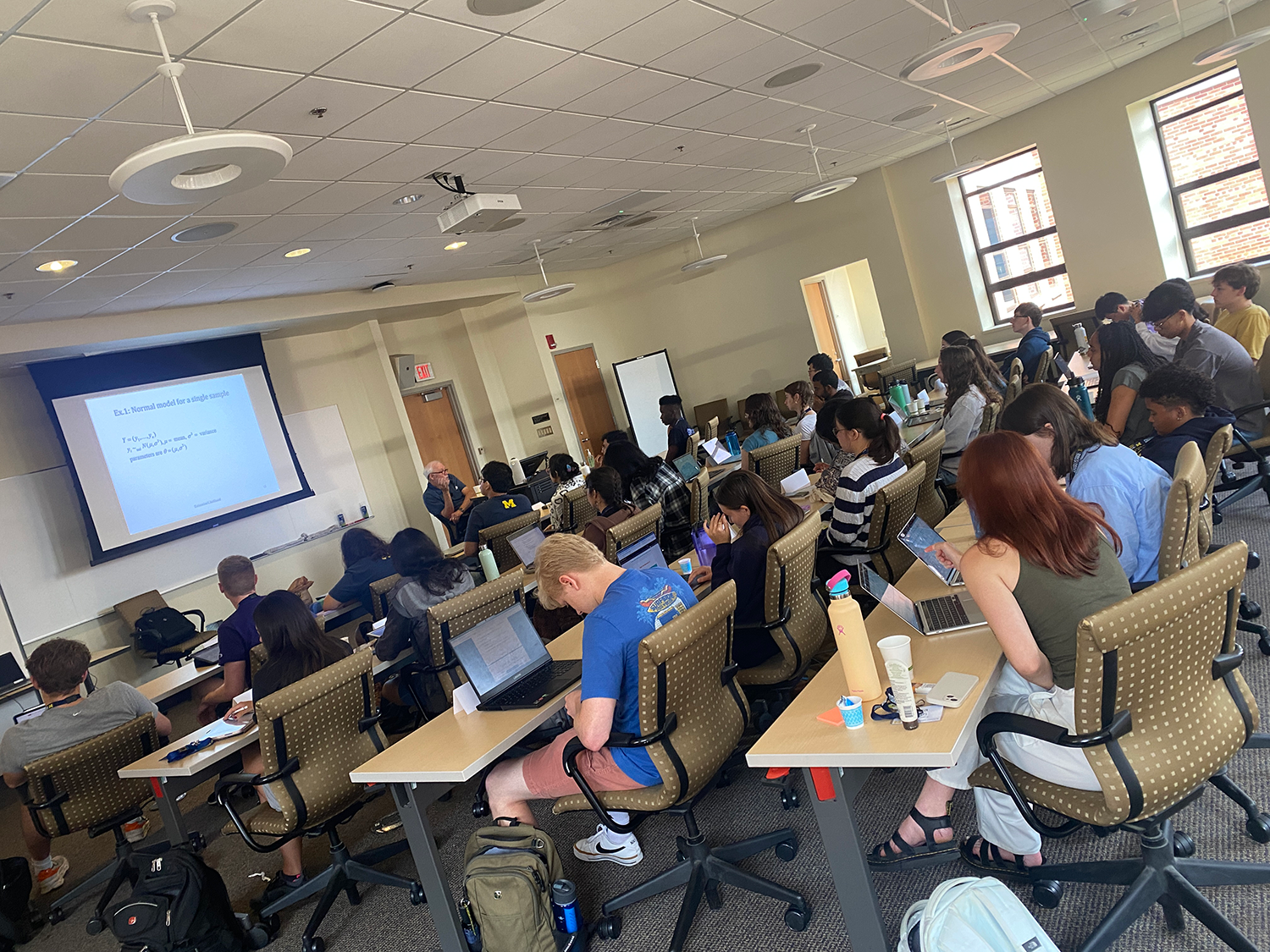
Daily lectures cover technical topics such as statistical analysis, machine learning, epidemiology, and data visualization, as well as clinical areas of application. These are taught by expert faculty who are leaders in the fields of statistics, informatics, computer science, and medicine, offering insights into cutting-edge research and methodologies.
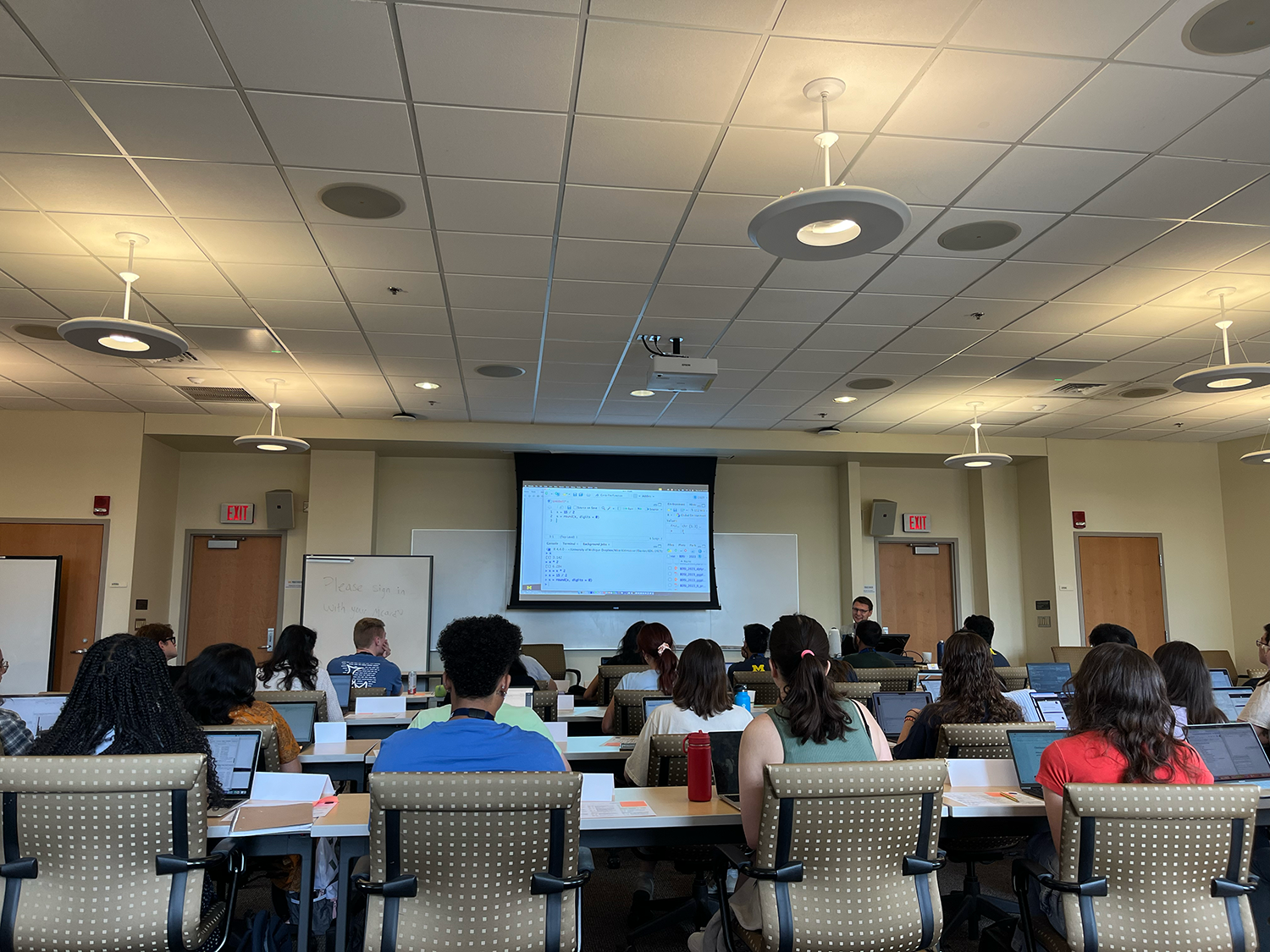
Get hands-on programming experience through interactive workshops focused on data processing and analysis in R and Python. These workshops are designed to prepare you for the demands of a rapidly evolving data science landscape.
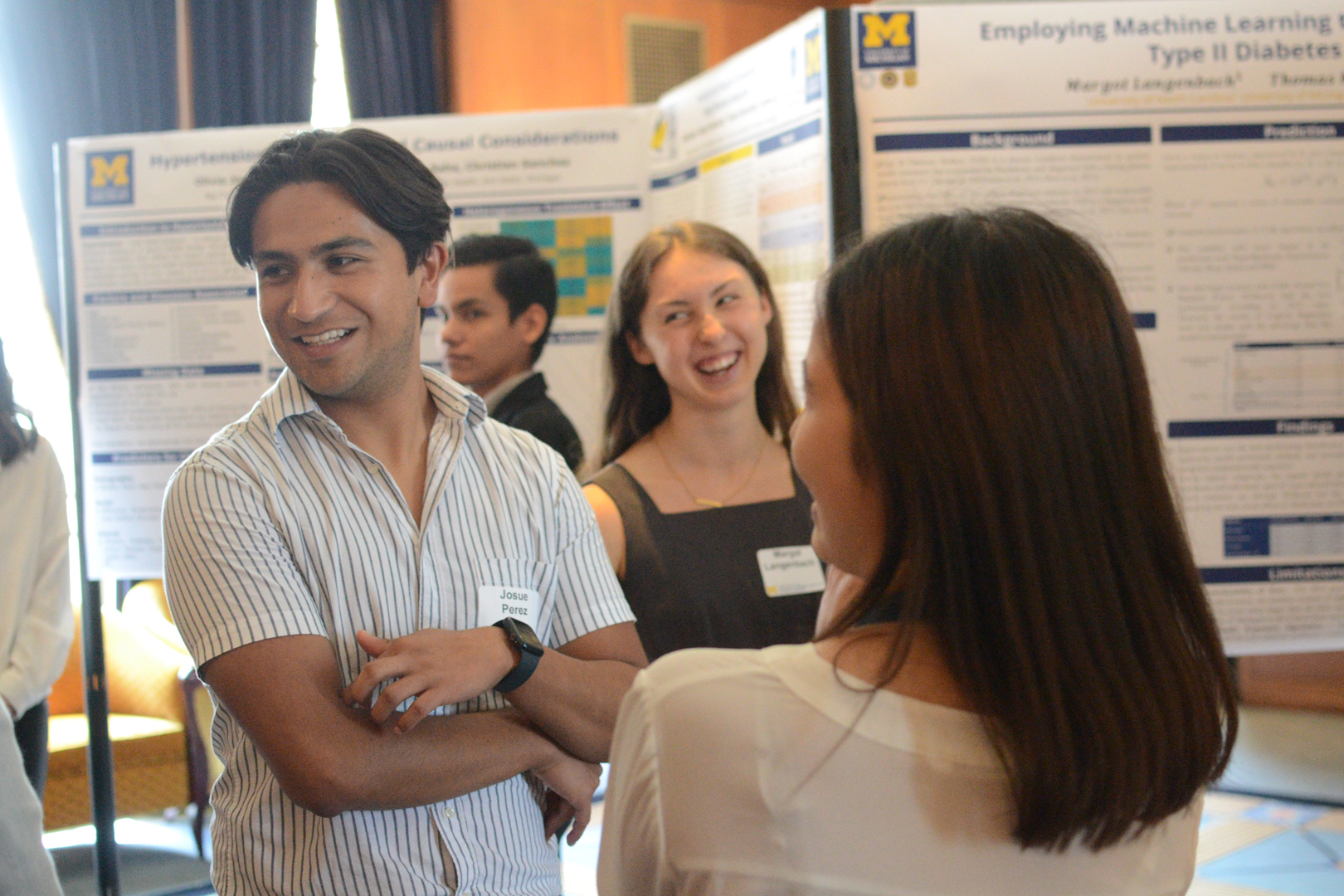
Work closely with peers in small groups on research projects that involve analyzing large, real-world datasets to address critical public health questions. This hands-on experience provides a glimpse into graduate-level research, allowing you to apply technical skills in practical settings while honing your abilities in collaboration and teamwork, all under the guidance of expert mentors.
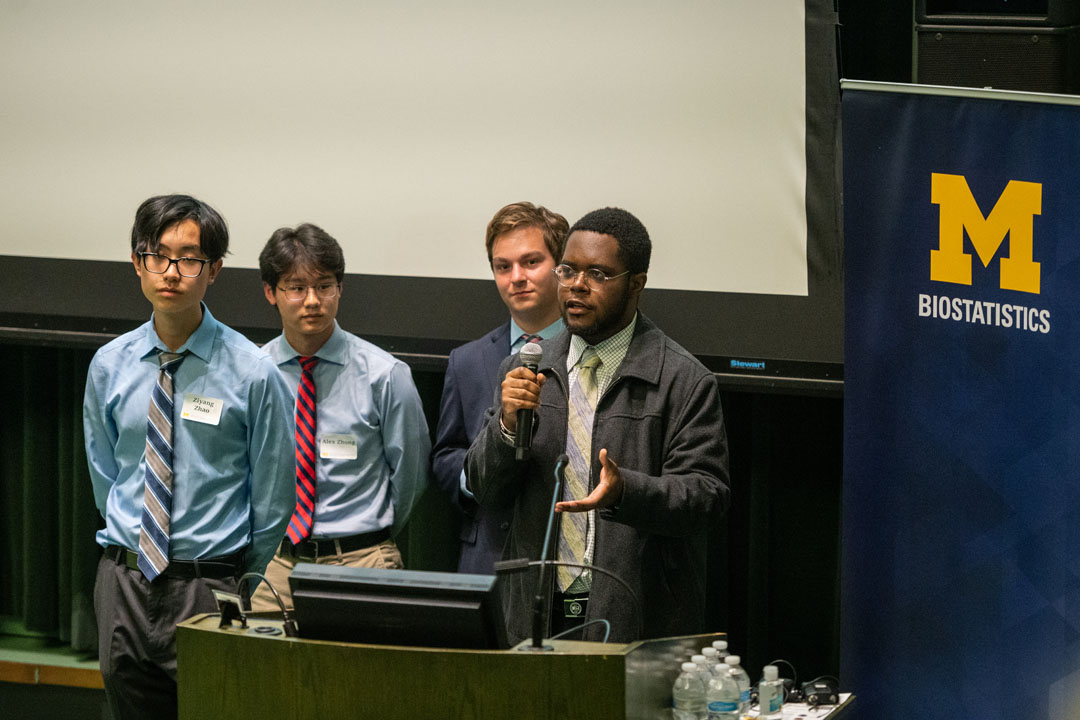
Showcase your research findings at a culminating symposium, where you will present to faculty, peers, and invited guests. This opportunity enhances your skills in scientific communication and prepares you for future professional or academic presentations.
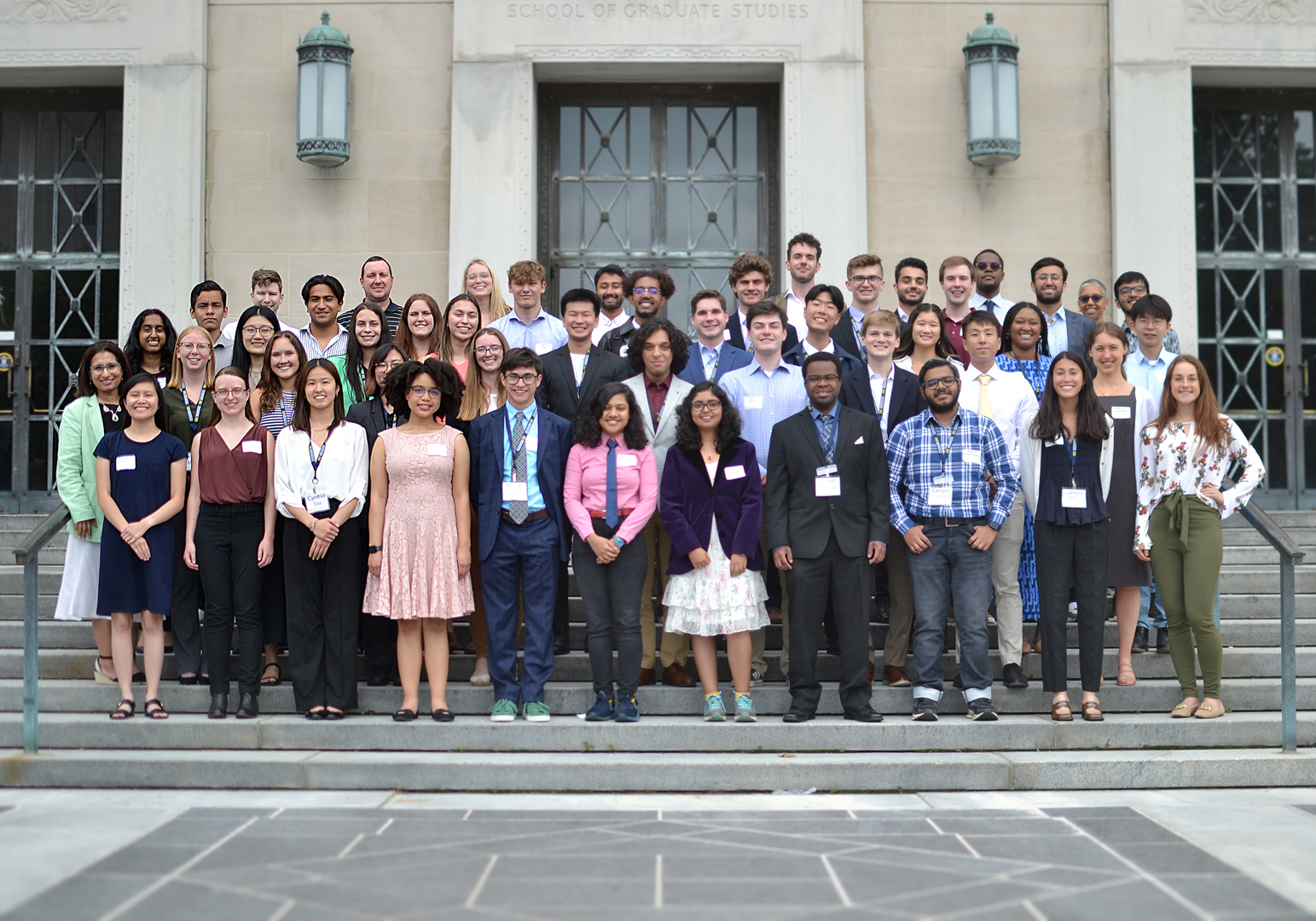
Gain valuable insights into career paths and opportunities in data science and public health. Through networking events and professional development sessions, you’ll connect with UM faculty and students, alumni, and fellow participants, setting the stage for your future success.
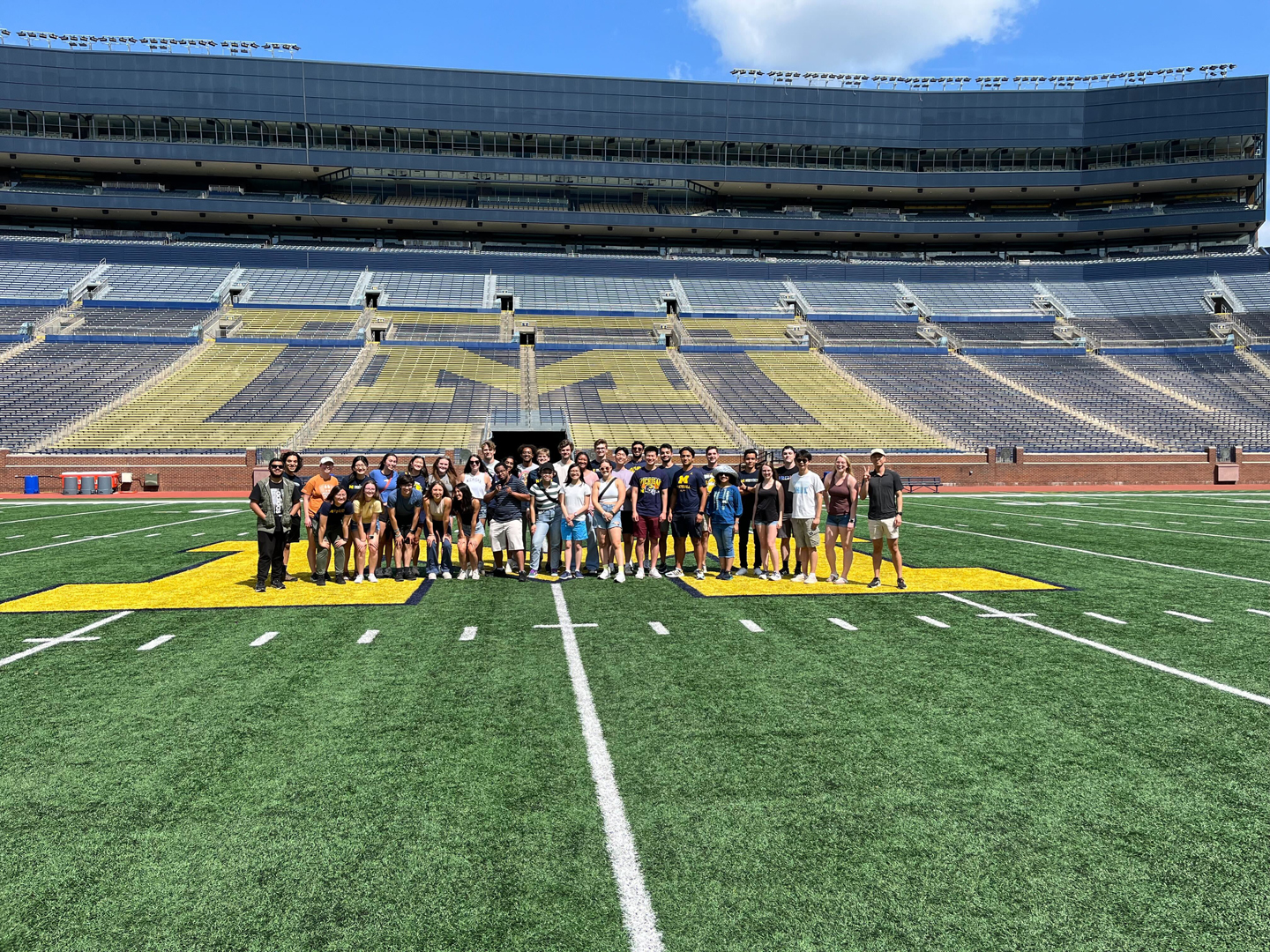
Enjoy a variety of social events and activities designed to help you unwind and build friendships with your peers. From group outings to informal gatherings, these activities create a vibrant and supportive community atmosphere, making your experience at BDSI both enriching and enjoyable.
